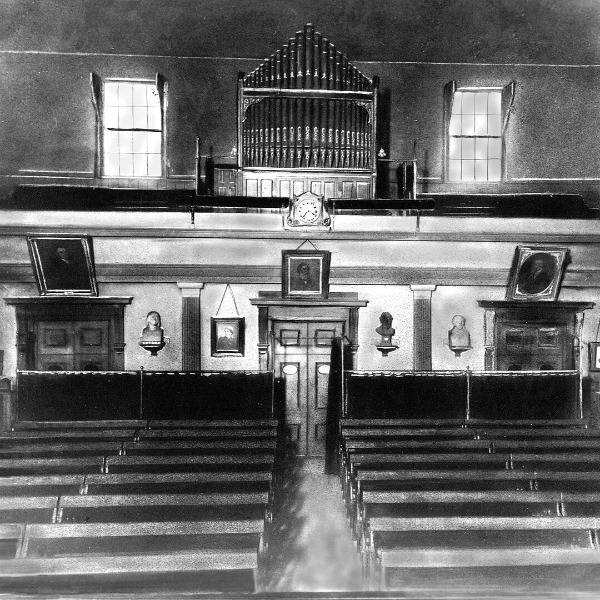Humanists pride themselves on their tolerance. Philosopher Richard Norman’s article in the previous issue of New Humanist (“Holy Communion”, November/December 2007) sets out this tolerant, liberal and civilised position in relation to religious belief. It is a position that is close to agnosticism, the belief that if there is a supreme being, its nature is unknowable, that whether we attach ourselves to a faith or not, we do not know whether there is a god. This is an honest – perhaps the only wholly honest – philosophical position in relation to belief in God; and it places many humanists close to those who fall just the other side of the wavering line between faith and doubt, who have, that is, decided to opt for faith while being aware that faith is always closely allied to doubt.
This leads Norman to dissent from militant atheists such as Richard Dawkins, who lump all believers together. The reason he gives for rejecting the “black and white” Dawkins stance is the necessity for humanists to put “humanist beliefs and values into practice and try to make the world a better place”. In order to do this, humanists, he says, will need to work with individuals and groups who profess religious beliefs of one kind or another.
This argument implicitly recognises that in the contemporary world religion has become highly politicised. Yet Norman appears not to recognise that the aggressive militancy of the “New Atheism” is precisely a political response to the equally political agenda of evangelical Christians, Islamists and others who have used faith as the battering ram to attack the citadels not simply of enlightenment reason but – paradoxically – of worldly power.
In this political climate, it is not enough to preach cooperation. Where atheists such as myself find it possible, we do work together with believers towards political ends of the kind Norman mentions, but this has to be only one prong of a two-pronged attack. The other prong is the promotion, by argument or example, of our own beliefs and the validity of our own way of life.
In arguing that atheists and humanists should backtrack on anger, Norman doesn’t acknowledge the political climate that has arisen even in sceptical Britain. It is all well and good for “us” to pay tribute to “the many good, sensitive, intelligent and sometimes wonderful religious people” we know, but the compliment is seldom returned. In all the talk of interfaith dialogue, the secular or “faithless” are habitually consigned to a black hole. To lack a faith is to be somehow wanting. It is held to be, as even the late Richard Rorty, himself an atheist, said, akin to being tone deaf, a lack, an emptiness. It is this misconception that needs to be challenged, as writers such as AC Grayling valiantly attempt to do (and as Jonathan Miller did in his 2004 TV series).
If non-believers are to acknowledge the virtues of the faithful, then we have the right to demand that they recognise ours, that they acknowledge the moral and philosophical respectability of non-belief. They do not do this – and perhaps in a way cannot, since the market position of every faith is that it is superior. The anger of Dawkins, Hitchens and others is therefore the necessary and inevitable response. Those who have criticised these writers for being intemperate and “fundamentalist” do have a point, but the aggressiveness of the new forms of religion is the cause of their angry response. It is not they but the religious fundamentalists who are responsible for the nature of the debate.
Unlike Dawkins, I do not believe that science answers all questions. Karen Armstrong has rightly pointed out that, in a curious way, the development of 19th-century science has led to a situation in which believers bring a quasi-scientific approach and a new literalism to religious texts, turning to the Bible in order to “look up facts about God”. According to this view, atheism becomes paradoxically too much like a faith, while at the same time believers try to turn religion into an empirical science.
In both cases, however, it is politics, not faith, that drives the militancy forward – and an important part of that politics is an attack on the rights of women. I am sorry that more women have not more forcefully made the argument against religion and the absurd and offensive strictures that priests and mullahs enforce against half the human population.
Whatever the faults, therefore, of The God Delusion, I have to recognise Dawkins as an ally. For in the present state of the world it is more important to challenge the claims of faiths to direct human affairs (including the lives of unbelievers) than to preach cooperation and turning the other cheek. There is some truth, after all, in the Dawkins contention that all religions, even the most benign, create a climate in which unbelief becomes aberrant.
These same religions seek political influence. Some lovely Christians, of the kind Norman mentions, may well oppose this, for all we know, but the point is not that they are “nice” people but that the religions seek power on earth – and that affects all of us. It is the politics of the situation that Dawkins attacks, not individuals; and politically he is correct.

